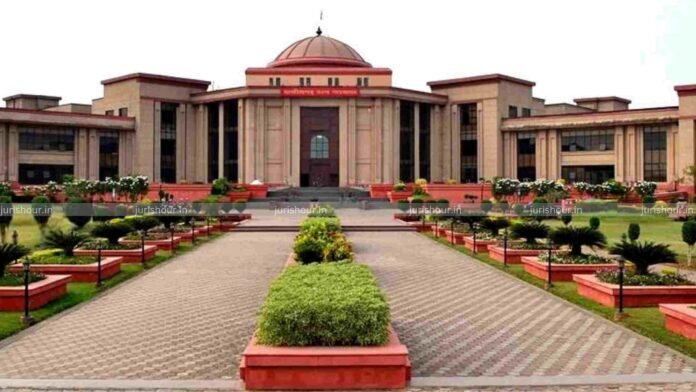The Chhattisgarh High Court while upholding the decision of the single bench held that Input Tax Credit (ITC) is not admissible on electricity supplied to townships maintained by Bharat Aluminium.
The bench of Chief Justice Ramesh Sinha and Justice Ravindra Kumar Agrawal has observed Input Tax Credit (ITC) is not admissible on the electricity supplied to the township maintained by the appellant/writ petitioner. This is because such supply cannot be said to have been made in the course or furtherance of the appellant’s business, as contemplated under Sections 2(17) and 16(1) of the Central Goods and Services Tax (CGST) Act, 2017.
In other words,the bench stated that the supply of electricity to the township is for the appellant’s own consumption and is not directly connected to any taxable supply of goods or services carried out by the appellant in the course of business. Consequently, the claim for ITC in respect of electricity is not permissible under the statutory framework.
The appellant/writ petitioner, Bharat Aluminium Company Limited was engaged in the manufacture, sale and export of aluminium products and had its factory premises situated at Korba, Chhattisgarh.
For carrying out its industrial operations, the appellant/writ petitioner had established two captive power plants of 540 MW and 1200 MW capacity at Korba. The appellant/writ petitioner imported coal on payment of Goods and Services Tax (GST) Compensation Cess and utilized the same for generation of electricity in the said power plants, which, in turn, was used for manufacture of aluminium products. The appellant/writ petitioner also maintained a residential township for its employees.
The appellant/writ petitioner that the electricity generated from the aforesaid power plants was utilized in three ways: (i) primarily, for manufacturing operations within the factory premises; (ii) partly, sold to the State Electricity Boards; and (iii) partly, supplied to the residential township for the benefit of its employees. The dispute before the authorities was confined only to the portion of electricity supplied to the township.
The appellant/writ petitioner had filed an application for refund under Section 54(1) of the Central Goods and Services Tax Act, 2017 seeking refund of Input Tax Credit (ITC) of the Compensation Cess paid on imported coal, amounting to Rs. 7,44,73,347/- for the month of February 2019. Out of the amount, a provisional refund of 90% was sanctioned on 06.05.2019 to the tune of ₹6,70,26,012/-. Subsequently, a show cause notice dated 07.06.2019 was issued proposing rejection of refund to the extent of Rs. 51,48,531/-, to which the appellant/writ petitioner submitted its reply on 19.06.2019, asserting that the electricity supplied to the township was for business purposes and that no reversal of ITC was warranted under Rule 42 of the CGST Rules.
However, by order, rectified on 06.07.2019, the Assistant Commissioner, State Tax, Korba, Circle-2, rejected the refund application holding that (i) the electricity generated by the 540 MW power plant and supplied for township consumption was not eligible for ITC of Compensation Cess attributable to that portion, and (ii) sale of Duty Credit Scrips (DCS) being an exempt supply required proportionate reversal of ITC under Rule 42 of the CGST, SGST, and IGST Acts.
Questioning the appellate order, the appellant/writ petitioner had preferred writ petitions that maintenance of the township and supply of electricity thereto were activities “in the course or furtherance of business” within the meaning of Section 2(17) read with Section 16(1) of the CGST Act, and therefore, eligible for Input Tax Credit.
The court noted that the amendment to Explanation 1(d) of Rule 43 of the CGST Rules, 2017, effected vide Notification No. 14/2022 –Central Tax dated 05.07.2022, is prospective in nature. It does not confer any retrospective right or entitlement to claim ITC for periods prior to the date of amendment. Therefore, any claim for ITC made in respect of periods antecedent to the notification cannot be sustained. The Single Judge, accordingly, was correct in holding that the appellant cannot rely on the amendment to justify any retrospective ITC claims.
The court while dismissing the writ appeal held that the common order dated 31.07.2025 passed by the Single Judge is affirmed in all respects. The Single Judge has meticulously addressed the issues raised, applied the statutory provisions correctly, and reached a conclusion that is legally sound. No ground has been made out to justify any modification or interference with the impugned order.
Case Details
Case Title: Bharat Aluminum Company Limited Versus State of Chhattisgarh
Case No.: WA No. 736 of 2025
Date: 14.10.2025
Counsel For Petitioner: Bharat Raichandani & Mr. K. Rohan, Advocates
Counsel For Respondent: Rahul Tamaskar, Government Advocate
Read More: Fake GST ITC | Orissa High Court Quashes Parallel GST Proceedings by DGGI Rourkela

